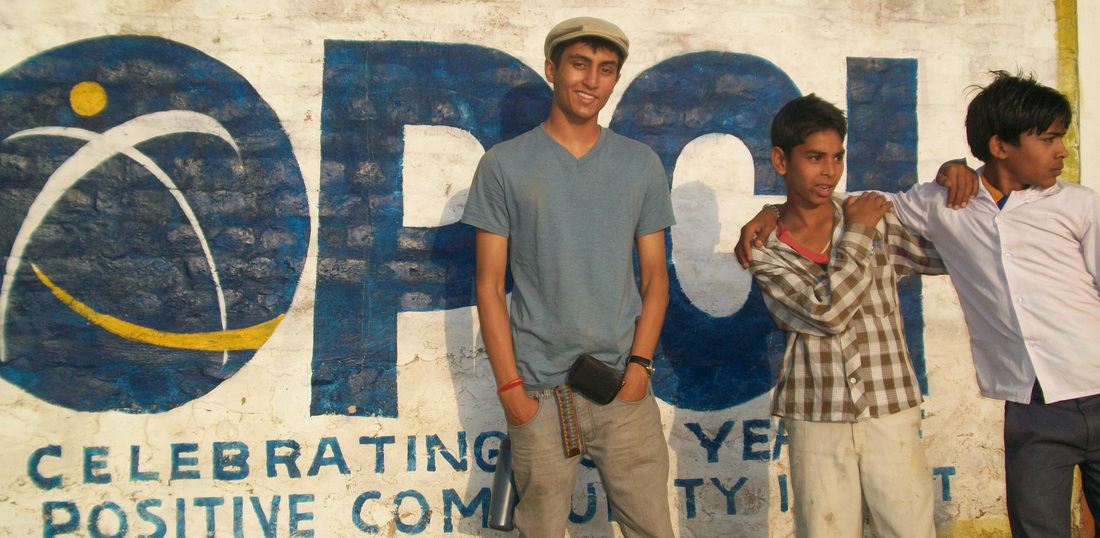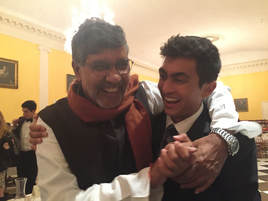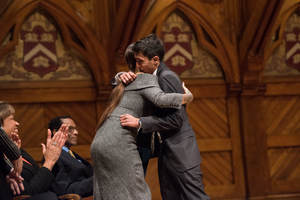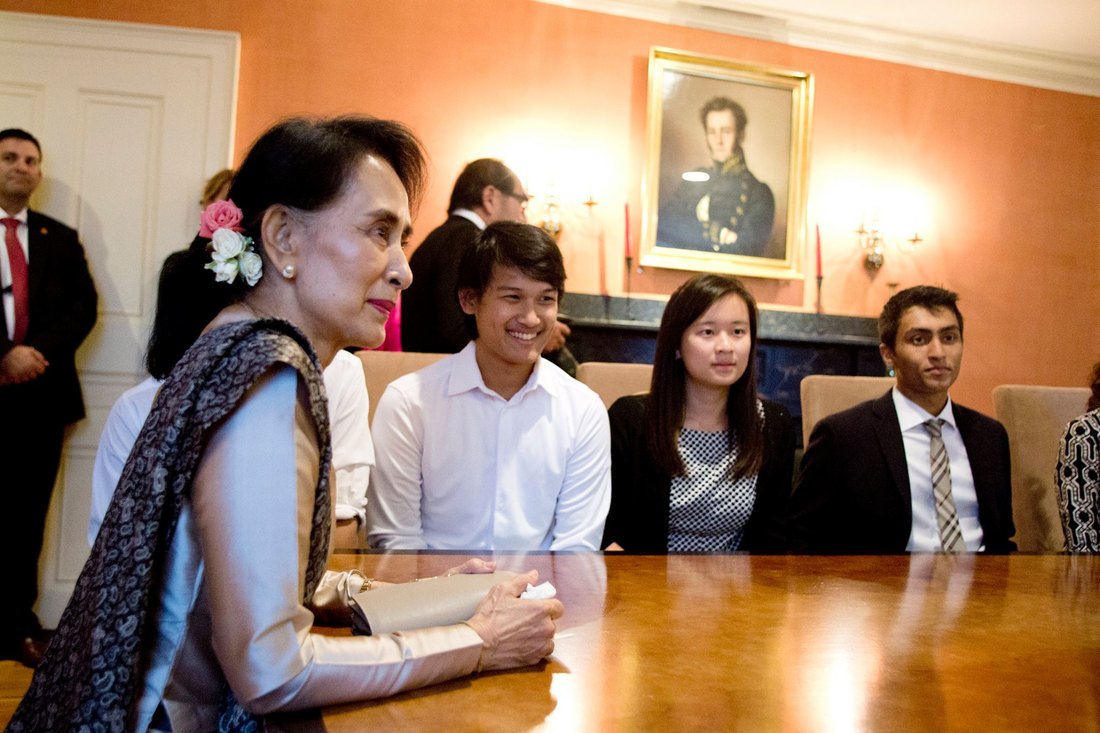Story and Inspiration
by Dylan de Waart, founder of Global Buddy
Inspiration can strike in unexpected places. For me it struck in Bhango Village, a rural community a day’s travel from New Delhi, across dirt roads dotted with camels, stray dogs and playing children. It was the last day of my stay, volunteering at an orphanage for dozens of boys without families of their own. These boys were the "lucky ones," no longer roaming railway stations or garbage dumps in search of scraps of food or begging for a few rupees.
At the time of my arrival a week earlier, I had felt trepidation when I saw a row of wide auburn eyes, peering out from behind each other at the gate of the compound. Would I be able to connect with the children? Would they even be able to speak English? Would their experiences be too different from mine? I soon got answers to these questions when a boy with bushy eyebrows, big Elvis hair and an even bigger smile came up to me. His timid eyes and scarred face betrayed his rough 15 years, but that smile refused to give in. He threw a mala over my head, took my hand, and whisked me to a tarp covering the barren concrete floor. His name was Ajay. We communicated the only way we knew how: with a few words of English and lots of pointing, gesturing, and laughing. Apprehension melted away. Over the next few days, my posse grew to four boys who followed me around the compound. Quite unexpectedly these boys had become my friends. My global buddies.
They taught me to see the world from their perspective. They taught me optimism in the face of adversity. They taught me that youths around the world have much in common, despite different backgrounds. Once we break the barriers of our perceived differences, we can become friends and learn from each other. So, I started to work on an idea to connect schools around the world, to create an online community of different ideas, cultures and inspirations. I wanted to make my own experience available to students who do not have the opportunity to travel, because in a world that is becoming increasingly interconnected, learning about other cultures is essential. What better way than to learn directly from other young people abroad?
At the time of my arrival a week earlier, I had felt trepidation when I saw a row of wide auburn eyes, peering out from behind each other at the gate of the compound. Would I be able to connect with the children? Would they even be able to speak English? Would their experiences be too different from mine? I soon got answers to these questions when a boy with bushy eyebrows, big Elvis hair and an even bigger smile came up to me. His timid eyes and scarred face betrayed his rough 15 years, but that smile refused to give in. He threw a mala over my head, took my hand, and whisked me to a tarp covering the barren concrete floor. His name was Ajay. We communicated the only way we knew how: with a few words of English and lots of pointing, gesturing, and laughing. Apprehension melted away. Over the next few days, my posse grew to four boys who followed me around the compound. Quite unexpectedly these boys had become my friends. My global buddies.
They taught me to see the world from their perspective. They taught me optimism in the face of adversity. They taught me that youths around the world have much in common, despite different backgrounds. Once we break the barriers of our perceived differences, we can become friends and learn from each other. So, I started to work on an idea to connect schools around the world, to create an online community of different ideas, cultures and inspirations. I wanted to make my own experience available to students who do not have the opportunity to travel, because in a world that is becoming increasingly interconnected, learning about other cultures is essential. What better way than to learn directly from other young people abroad?
Dylan de Waart stepped down as CEO of Global Buddy in 2016, but remains on our advisory board. He currently studies Economics at Harvard and continues to promote and facilitate intercultural dialogue and understanding at the Harvard Foundation for Intercultural and Race Relations.





